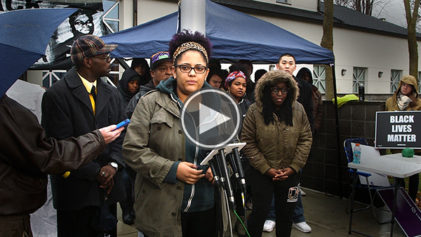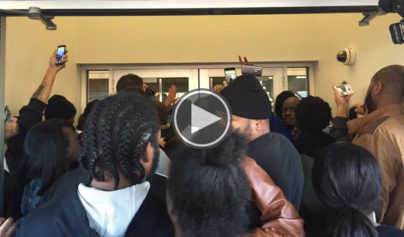Lawmakers have toyed with the decision of legalizing marijuana and now Minneapolis police will no longer go after low-level marijuana sellers due to racial disparity.
Minnesota officials announced on Thursday that sting operations targeting low-level marijuana dealers will no longer be in effect and charges may be dropped against 47 people who were arrested from January to May 2018.
Mayor Jacob Frey was contacted by Hennepin County’s chief public defender Mary Moriarty regarding glaring racial profiling after undercover cops made more than 100 arrests including 47 felony arrests of marijuana possession. However, 46 of the 47 people who were convicted happened to be Black.
“If you sell one gram of marijuana, it’s a felony drug sale,” Moriarty told WCCO. “Do they [Black people] deserve to get felony drug charges simply because they are less fortunate than say kids on college campuses.”
She continued, “Approaching Black men and women who are low income and homeless and then having the county attorney charge them with felony drug sales makes me very angry and disappointed.”
Mayor Frey stated on Thursday, “I believe strongly that marijuana should be a lowest-level enforcement priority and that it should be fully legalized at the state level… The fact that racial disparities are so common nationwide in the enforcement of marijuana laws is one of the reasons I support full legalization.”
His statement was followed by a press conference by Minneapolis’ Police Chief Medaria Arradondo who agreed with the Mayor’s decision and told his officers to direct small circle drug offenders to treatment, counseling and diversion instead of locking them behind bars.
“Mayor Frey has directed us…we will discontinue specific low-level marijuana enforcement.”
Minnesota public defenders are heavily advocating for the dismissal of felony charges against all 47 people who were arrested during the sting operations and that “a review of the cases received by our office strongly suggests a trend of racial profiling under the guise of a ‘livability’ detail” according to a letter Moriarty wrote on May 29 to Arradondo.
Assistant county public defender Jess Braverman added, “On the dates of the stings, officers are approaching people of color, individuals and groups, and asking to buy drugs,” Braverman wrote. “Officers have directly asked black men to facilitate drug deals with other Black men.”

